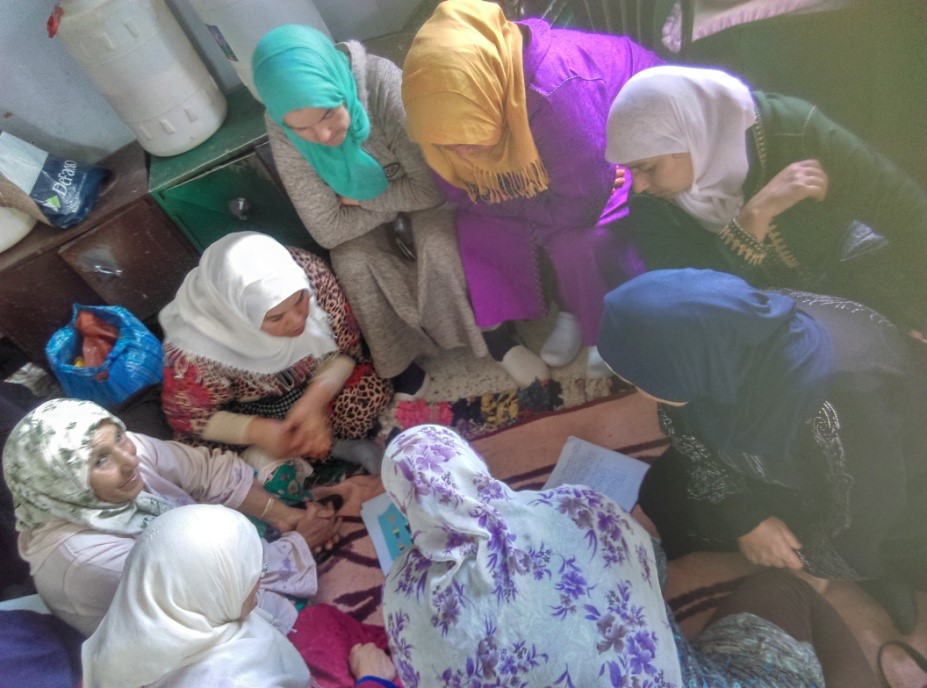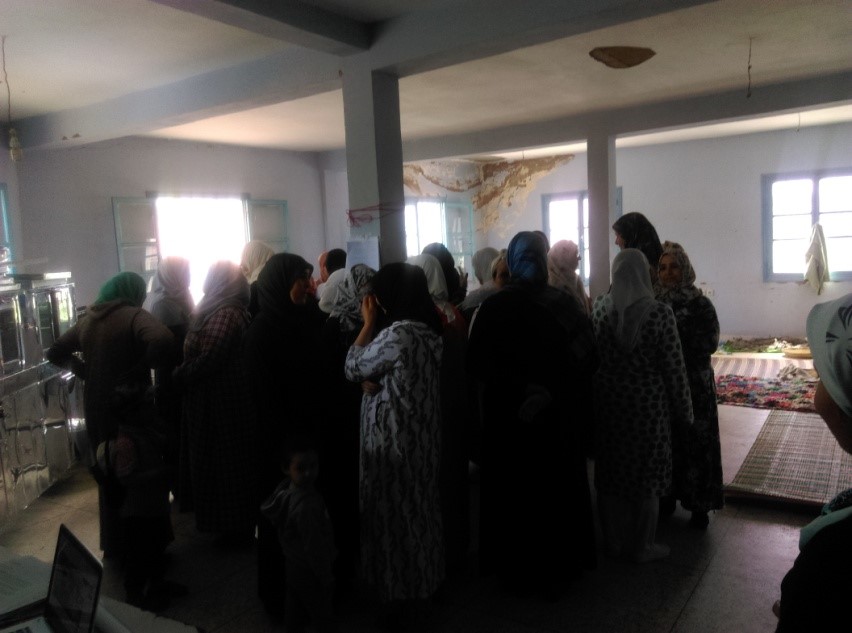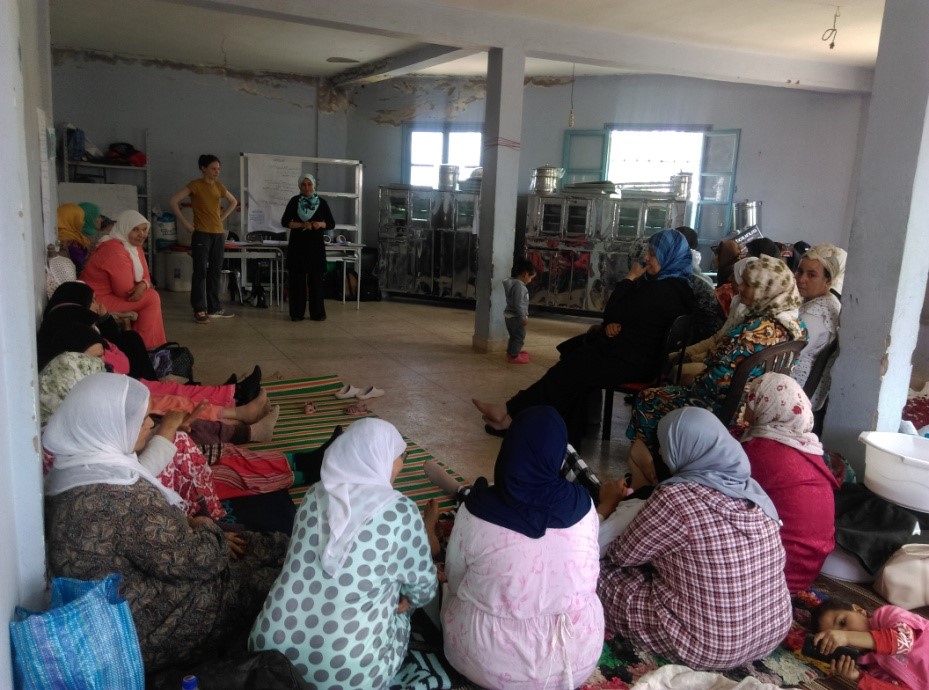By Sanae Benaadim
HAF Volunteer
One month of my volunteer experience at the High Atlas Foundation has already passed!
I had my second chance to accompany Amina El Hajjami, Director of Projects, to facilitate a workshop for 29 women of the Aboghlou Cooperative. This two-day workshop took place in the Ourika Valley, which is 30 kilometers outside of Marrakech. At the entrance of the cooperative, different products line the shelves, telling stories of the women’s hard work.

The first day of the workshop entailed reviewing the definition of a cooperative and its seven principles: 1) optional membership open to all; 2) democratic management of a cooperative; 3) economic contribution of members; 4) self-management and autonomy; 5) cooperation between cooperatives; 6) commitment to society; and 7) training and information. Most participants’ answers demonstrated a sufficient understanding of these concepts. To ensure comprehension, Amina used pictures of the cooperative’s seven principles to help women have a clear vision and perception of the principles. She also conducted a practice training, which consisted of creating four groups. Each group included at least one woman with literacy skills to write. After 30 minutes, the four groups had a discussion together. The women showed that they are ambitious and aspire for better conditions to work productively. The following are some of their identified goals:
- Increase the cooperative’s membership
- Create branches for Aboghlou Cooperative in the region of Marrakech-Safi
- Be open to considering membership for youth who hold higher education degrees
- Contribute to charity

The following day was amazing in how Amina facilitated the training. First, she used Amazigh traditional music to implement an icebreaker, which I think was helpful to revive the women’s energy and to kickoff the day with a good start. The activity entailed participants making pairs whenever the music stopped. Then, partners were to make eye contact and listen to each other’s answers to a question posed by Amina. Amina and I presented an example in front of the participants in order to explain the icebreaker properly. It was intiially difficult for the women to learn the exercise, but they came to understand and enjoy it through practice.

Nowadays, there is a lack of listening and making eye contact with others. It is rare for people to maintain eye contact for one minute. This may relate to different reasons, including cultural norms and tradition. For example, when an elder speaks (e.g., a father), it is a sign of respect to avoid eye contact. I believe that we can change this traditional behavior by addressing it within families, encouraging them to practice eye contact while listening to one another.
There are six international methods of practicing positive communication:
- Breathe
- Facts
- Feelings
- Needs
- Find solutions
- Conclusion

One of HAF’s objectives for doing this workshop with Aboghlou is to empower the women to develop their cooperative, establish suitable work conditions, and promote positive communication between the members.
